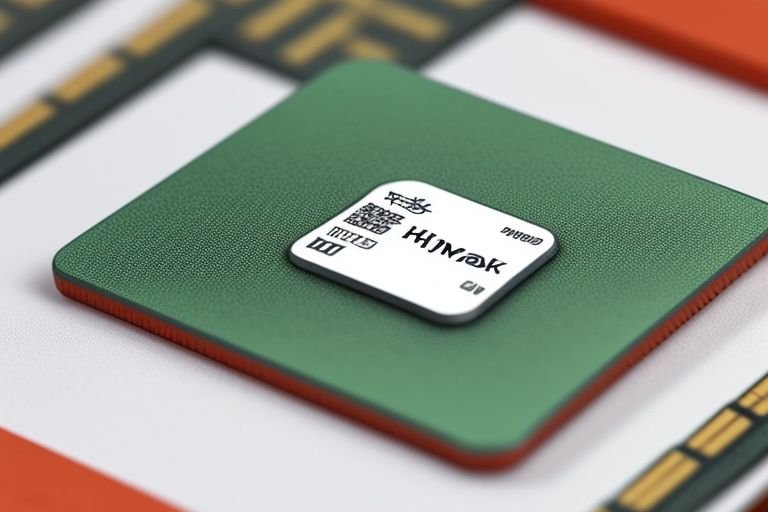
SK Hynix Expands AI Chip Production Amid Surging Demand
South Korean second-largest memory chip maker SK Hynix has doubled down its AI chip production as global demand surges. The memory chip maker is seeking to diversify and reap benefit from the recently emerging artificial intelligence technology trend that has been propelling the semiconductor business forward.
The move came shortly after SK Hynix announced it had set all-time highs in sales of its high bandwidth memory (HBM) chips, a key element in AI systems. These are advanced memory chips used to provide high bandwidth to feed various large AI models and to train them.
Speaking in a press conference, the CEO of SK Hynix, Kwak Noh-Jung, said: “We are seeing a brand new, skyrocketing demand for AI chips.” At that, our growth strategy does not only aim at responding to the demand needed to support the existing trends, but building for SK Hynix a dominant position in the market of AI semiconductors for years to come.
It shall entail capital spending of tens of billions of dollars in building capacity and expanding and modernizing existing factories. The company is asserting that it aims at doubling its overall HBM chip production within the next two years mainly targeting its HBM3 and HBM4 technologies.
This is viewed as a direct attempt to counter act competition in the space or in the international market now from NVIDIA and AMD. Thus, SK Hynix plans to take advantage of their advanced memory technology experience to capture a large slice of this fast-growing market.
Its development strategy goes beyond manufacturing of the necessary hardware alone. The company also plans to focus on research and development investment to be able to offer products that are powered with the latest technology. This entails partnerships with the premier AI research organisations and technology firms to design the future memory solutions for AI.
Industry experts believe that the move is a strategic business decision on the part of SK Hynix. Another analyst from South Korea, Kim Dong-won at KB Securities, said, “The stock is also likely to be a winner of the AI bubble.” Experts in high-performance memory make them a favourite in the AI chip market.”
As it shall be seen in this paper, the expansion is likely to have a pronounced impact on the South Korean economy. The semiconductor industry is one of the most important industries in the country, and the growth of SK Hynix in AI chip market can contribute to enhancing the South Korea’s role in the global technology industry.
However, this move is not without some major considerations as we discuss below. This is specifically true for the global semiconductor industry as there are called to be cyclical, and people start to get worried that AI chips demands might not meet expected levels and that there could be an oversupply on the market. This means that SK Hynix will have to be very cautious so that it does not overproduce in light of expanding production capacity.
The company is also experiencing growing competition from Chinese manufacturers who are actively working on AI chip development. In response to this, SK Hynix is focusing on its technology platform and delivery capacity as major strategic brand values within the market.
Another element that has come under consideration by SK Hynix is the question of the environment which the company intents to solve within its expansion strategies. As a commitment, the company is ready to introduce state-of-art sustainable manufacturing processes in the new production units that would mean expansion of production with even lesser emission.
South Korean Government remains a major booster of SK Hynix as it believes that the company is a significant driving force to retained the country’s competitiveness in the global technology market. The South Korea Ministry of Trade, Industry and Energy has declared its intentions of granting the company tax exemptions and reliefs alongside offering it the right policy framework for the manufacturing of more artificial intelligence chip.
It is also projected to generate thousands of employment opportunities, not only in the company through chip production but also in other sectors as well. This could prove to be a massive fillip for South Korea’s employment landscape especially in the high technology areas.
Hence, the company’s major concentration on the AI chips is not peculiar especially so given the fact that many other significant giant semiconductor corporations are starting to focus on such high demand technologies as AI as well as machine learning. Analysts and industry insiders have view SK Hynix’s move as an inevitable strategic shift in the face of a fast emerging market environment.
Another area of growth in the electric vehicle battery supply chain is also agreements with key players in artificial intelligence and cloud computing services. They could result in the production of memory solutions that are unique to the various applications of AI, thus enhancing the company’s portfolio.
To sum up, the fact of SK Hynix’s expansion of AI chip production, which became the turning point in South Korea’s tech industry, shows the definite possibility. This is a perfect time for the company to turn this foresight into a competitive advantage of defining the future of SK Hynix and South Korea’s place in the global semiconductor market as the interest in AI reaches new highs around the world. Of course, it is crucial to understand that potential benefits of the successful overcoming of this expansion may bring not only benefits for the company but also for the whole South Korean economy.


